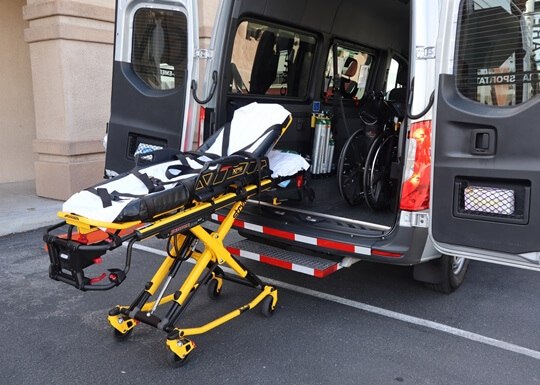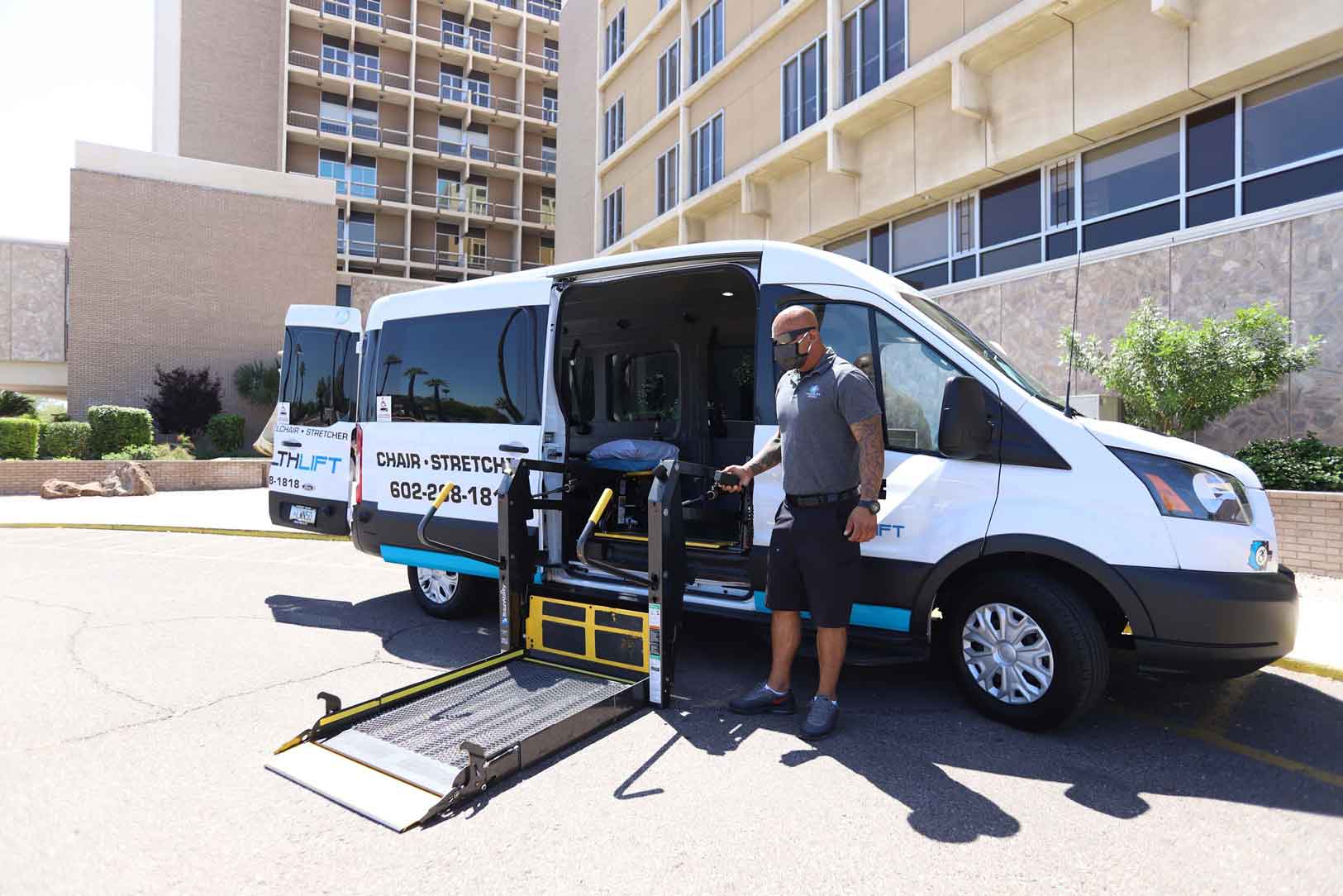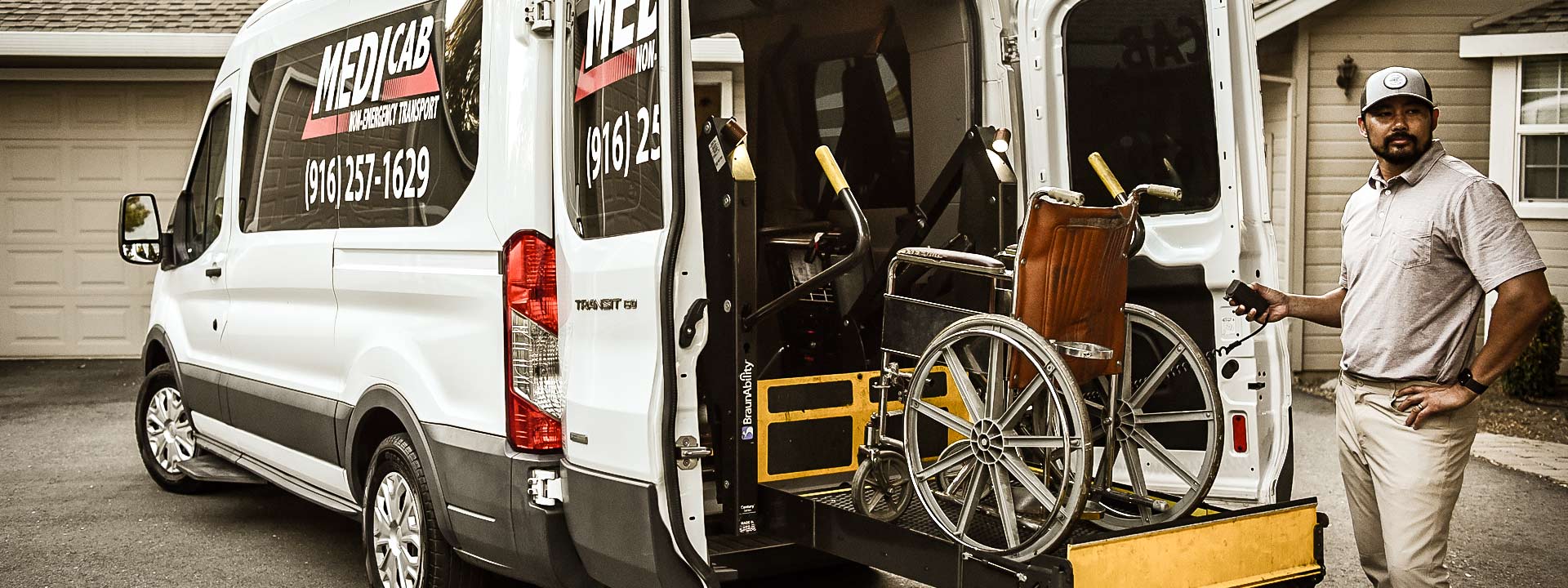Streamlined Medical Transportation Services Near Me: Guaranteeing Convenience and Care
Streamlined Medical Transportation Services Near Me: Guaranteeing Convenience and Care
Blog Article
Accessible and Affordable Medical Transportation Options for Seamless Wellness Support
In the world of health care, the accessibility and cost of medical transport are vital in guaranteeing people can access the treatment they require when they require it. The capability to effortlessly browse transport options can dramatically influence an individual's ability to get prompt clinical attention, follow-up treatment, and general wellness. From non-emergency medical transport solutions to innovative services like telehealth, the landscape of medical transportation is advancing to fulfill the varied demands of individuals. Thinking about the value of this element in healthcare shipment, checking out the range of options readily available ends up being essential for attending to gaps in ease of access and affordability.
Non-Emergency Medical Transport Solutions

These solutions are staffed by trained experts that prioritize individual comfort and safety and security during transportation. Motorists are equipped to handle individuals with differing medical needs and guarantee that all journeys are smooth and stress-free - Medical Transportation Services Near Me. Additionally, non-emergency medical transportation solutions frequently make use of specialized automobiles that are wheelchair-accessible, making them ideal for a variety of people with various wheelchair requirements
Volunteer Chauffeur Programs
Volunteer motorist programs contribute in giving transportation aid for people in requirement of non-urgent clinical care. These programs count on the generosity of volunteers that contribute their time and lorries to assist transport clients to and from medical appointments. By making use of volunteer vehicle drivers, organizations can use a cost-effective remedy for individuals that might not have access to trusted transportation.
One of the crucial benefits of volunteer driver programs is the individualized treatment and attention that patients obtain. Unlike typical transportation services, volunteer chauffeurs typically create a relationship with the individuals they aid, developing a supportive and compassionate setting during what can be a demanding time. In addition, volunteer chauffeur programs can assist connect the void for people staying in rural or underserved locations where public transportation alternatives may be restricted.
Public Transport Options

One of the vital benefits of public transportation is its widespread accessibility in metropolitan and country locations alike. This substantial network allows people from diverse histories to travel to clinical consultations with family member convenience. Furthermore, next page public transport systems are frequently geared up to fit people with impairments, offering available traveling choices for those with flexibility obstacles.

Ride-Sharing and Transport Network Firms
The advancement of modern transportation choices for clinical objectives prolongs beyond conventional public systems like trains and buses to encompass the innovative world of ride-sharing and transport network firms. Ride-sharing solutions such as Uber and Lyft have actually changed the means individuals take a trip to medical visits, using benefit and flexibility to individuals who might not have accessibility to their vehicles or conventional mass transit. These platforms enable users to request an adventure with the touch of a switch on their mobile phones, giving door-to-door solution that can be specifically beneficial for people with wheelchair challenges or those calling for support.
Transport network business (TNCs) have actually likewise played a considerable role in bridging the gap in medical transport solutions. Companies like Veyo and RoundTrip specialize in non-emergency medical transportation, accommodating clients that need a higher degree of help during their trips to medical facilities. By partnering with doctor and insurance companies, TNCs make certain that clients can access reputable and timely transport options, eventually adding to boosted health and wellness outcomes and individual fulfillment.
Telehealth and Virtual Examinations
Enhancing healthcare ease of access and ease, telehealth and online appointments have become pivotal elements in modern-day medical techniques, transforming the method patients communicate with doctor. Telehealth leverages innovation to help with remote interaction in between patients and health care specialists, offering a large variety of solutions such as digital consultations, remote surveillance, and digital prescriptions. Online appointments make it possible for patients to look for medical guidance, diagnosis, and treatment review from the comfort of their homes, getting rid of the demand for physical visits to health care centers. This approach not only conserves time and minimizes transport expenses for people but likewise improves the total efficiency of healthcare delivery.
In addition, telehealth plays an essential duty in expanding clinical services to underserved communities, country areas, article and individuals with minimal movement. By breaking down geographical obstacles and raising medical care outreach, telehealth advertises very early treatment, connection of care, and patient engagement. As modern technology remains to advancement, telehealth is positioned to play an increasingly substantial function fit the future of healthcare delivery, cultivating enhanced health end results and individual contentment.
Final Thought

From non-emergency medical transport solutions to cutting-edge remedies like telehealth, the landscape of medical transport is developing to satisfy the varied demands of clients.Non-Emergency Medical Transport Solutions help with the secure and timely transportation of people calling for non-urgent clinical care to and from medical care centers.The advancement of modern-day transport alternatives for clinical functions expands past traditional public systems like trains and buses to incorporate the innovative realm of ride-sharing and transportation network companies.Transportation network firms (TNCs) have additionally played a substantial role in connecting the void in medical transport services. Non-Emergency Medical Transport Providers, Volunteer Motorist Programs, Public Transport Options, Ride-Sharing and Transport Network Companies, and Telehealth and Virtual Consultations all play a critical role in addressing transportation barriers to medical care access.
Report this page